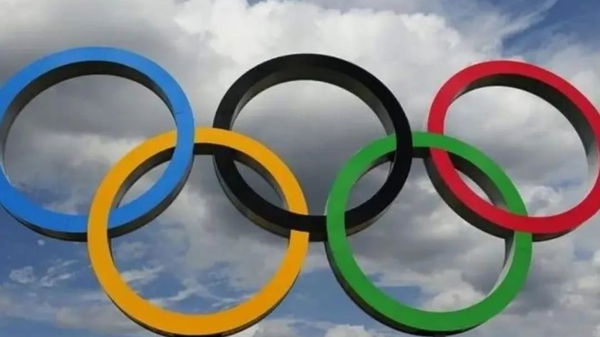

In a hot minute might become the catchphrase of anyone visiting Paris to catch the games this year and it’s all thanks to soaring temperatures. Following the restrictions and social distancing protocols at the 2021 Tokyo Olympics due to COVID-19, there is a high anticipation of a more relaxed experience at the Paris Olympics. However, the looming heat waves threaten to overshadow the excitement for the 2028 Los Angeles Olympics. Paris recently endured record-breaking temperatures, raising alarms about the potential impact on athletes, spectators, and the games’ success.
Climate change drives severe weather patterns worldwide, prompting urgent calls for adaptive measures to ensure future sports competitions’ viability. France’s decision not to provide air conditioning, aimed at reducing environmental impact, contrasts sharply with concerns. More than half of the Olympic events being outdoors leaves athletes vulnerable, prompting significant worries about their health and performance. Will athletes dreams be driven into the red with heat strokes becoming the norm?
It’s hot stuff in Paris as temperatures reach stratospheric heights
ADVERTISEMENT
Article continues below this ad
Athletes are expressing concerns that climate change could heighten the risks in their sports. NBC News recently highlighted these worries regarding rising global temperatures ahead of the Paris Olympics. The effects of climate change are felt in the sports community as well, a ripple effect that is set to raise alarm bells blaring for sports performance. In fact, discus thrower Sam Mattis, who was on the 2020 U.S. Olympic team, asked whether summer games which are held during some of the hottest months of the year will even be a thing till the 2028 Los Angeles Games.

He said, “I think in a lot of places in the U.S. and around the world, summertime competitions, unless they’re held in the middle of the night, are going to become essentially impossible.” This is not completely unfounded, as reports from British and American climate advocates and sports organizations said 11 other athletes also expressed their concern. Scottish rugby player Jamie Farndale also said they’re pushing their bodies to the “absolute limit” when training for and partaking in the elite stage, “When things get unsafe in the sort of 30-, 35-degree temperatures, yeah, it becomes pretty dangerous.”
They are scheduled to play 6 games over the course of 3 days, with no time to cool off in between. In Tokyo, around 110 athletes suffered illnesses caused by the heat, with temperatures soaring to 95 degrees Fahrenheit and humidity levels hitting 70%. The weather in France is said to be at least 5.5 degrees hotter than a century ago in 1924. The last Olympics were held in Paris at that time. Apparently athletes are resorting to jumping in ice baths to bring their core temperatures down, but alas, that didn’t work so what other quick fix is there to abate the sultry heat?
ADVERTISEMENT
Article continues below this ad
However, a representative of the IOC has addressed the concerns, saying the events have been scheduled in a way that will help avoid the heat, “providing athletes and spectators with the best and safest conditions possible are top priorities for the IOC and the entire Olympic Movement.” France’s meteorological agency, Météo France, will be actively looking out for bad weather and making adjustments to the schedule if need be. A study in the Lancet Planet Health journal stated Paris is amongst Europe’s hottest cities. Last year, 5000 deaths were caused due to heat waves. All of this provides some cause for preventative action and it to be nipped in the bud. Especially for open air events like those of track and field and rugby. Now, with this in mind and Los Angeles being one of the hottest places in America, what’s in the offing for the denizens and potential athletes four years from now?
What is in store for LA ‘28?
Similar to Paris, LA is also located in a mid-latitude region. This makes it susceptible to heat waves during the summer and extreme weather conditions. Other than this, LA also experienced urban heat island effect, making it significantly hotter than surrounding areas. So, if there are temperature concerns for Paris after the Tokyo incidents, the worry will persist if not heighten for Los Angeles. The solutions to this rising problem are two-fold. One solution the IOC might consider is keeping the Olympic schedule unchanged. This is to shift the venue to the Southern hemisphere, which experiences Winter, such as Australia.
ADVERTISEMENT
Article continues below this ad
Another solution will, of course, be changing the timeline and postpone the games for when it is cooler outside. Now it is up to the organization to take matters more seriously. In an effort to reduce the carbon footprint during the Olympics, France has decided to do away with ACs. Geothermal cooling and natural ventilation will replace traditional air conditioning in the Athletes’ Village, where Olympians will stay. However, reportedly the village will be around 11 degrees cooler than the rest of the arena. Additionally, athletes can rent “mobile cooling units.”
A spokesperson backed this up saying, “We believe we have found a good balance between our primary commitment to athlete wellbeing and our responsibility as major event organizers in the face of climate change.” Other than this, the beds made from recyclable materials that were used during Tokyo will make a comeback. The beds are designed to collapse under sudden movements to prevent athletes from getting intimate. They’ve been cheekily dubbed anti-sex beds. Only time will determine if these measures are effective in practice.

